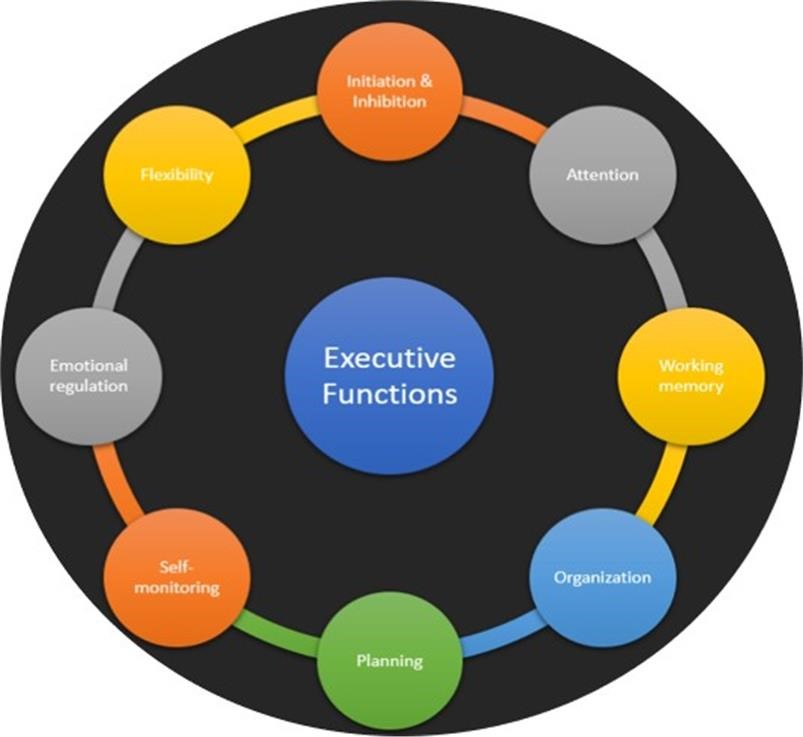Executive Functioning
Executive functioning skills are mediated or controlled by an area of the brain called the pre-frontal cortex. It refers to a collection of higher-order skills or brain processes considered our behaviour’s foundation and necessary for learning. If a child has difficulty with their executive functions, this will also translate into any task that requires planning, organizing, and executing tasks. These functions are involved in a wide range of skill areas. There are eight components of executive functioning that support our learning and behaviour:

Initiation: Initiation: The ability to begin an activity and come up with ideas or problem-solving strategies independently
Inhibition: The ability to stop an action that is in progress (impulsivity ties into this skill)
Attention: The ability to focus with the duration and efficiency required to learn important information
Working Memory: Working memory refers to how we hold on to and work with information stored in short-term memory
Organization: Organization allows you to manage not only your physical space but to handle the information and stimuli that you receive in an effective and logical way
Planning: Planning, or the ability to manage your time, is central to being able to complete activities promptly, and according to a schedule
Self-monitoring: Self-monitoring refers to the ability to keep track of one’s performance, assess how it measures up to a goal, and catch and correct mistakes
Emotional Regulation: Emotional regulation refers to the ability to understand your behaviour and to manage your reactions
Flexibility: The ability to think of alternative ways of doing things, integrate new ideas into existing thinking, and abandon what isn’t working to try a new approach
At DSRF, occupational therapy can assist your child with developing their executive functioning skills to support their ability to successfully participate in their day-to-day activities. This includes self-care (i.e. dressing, grooming, feeding), productivity (i.e. printing, cutting, typing) and leisure (i.e. peer interactions, fine motor play, gross motor play).
